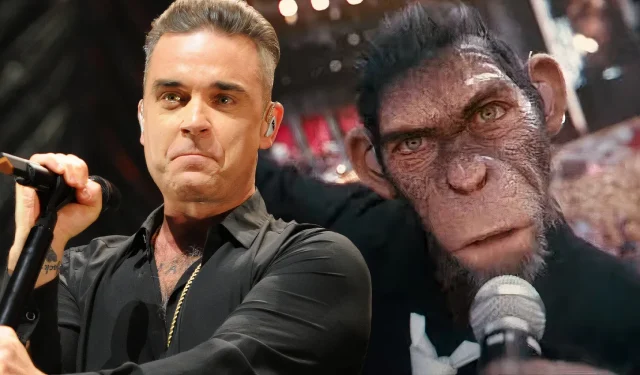
Warning! This article contains spoilers for Better Man.
The film Better Man offers a captivating glimpse into Robbie Williams’ life but concludes without detailing significant events that have occurred since. Central to the narrative is a CGI representation of Williams, one of the most celebrated British musicians of recent decades.
The climax of Better Man illustrates Robbie Williams’ post-rehabilitation success, showcasing his powerful rendition of Frank Sinatra’s “My Way” at the Royal Albert Hall—a memorable moment from 2001. However, the film also intersperses fictional timelines and leaves the audience curious about his journey after this phase in his career.
Robbie Williams Rejoins Take That
Mending Feuds with Former Band Members
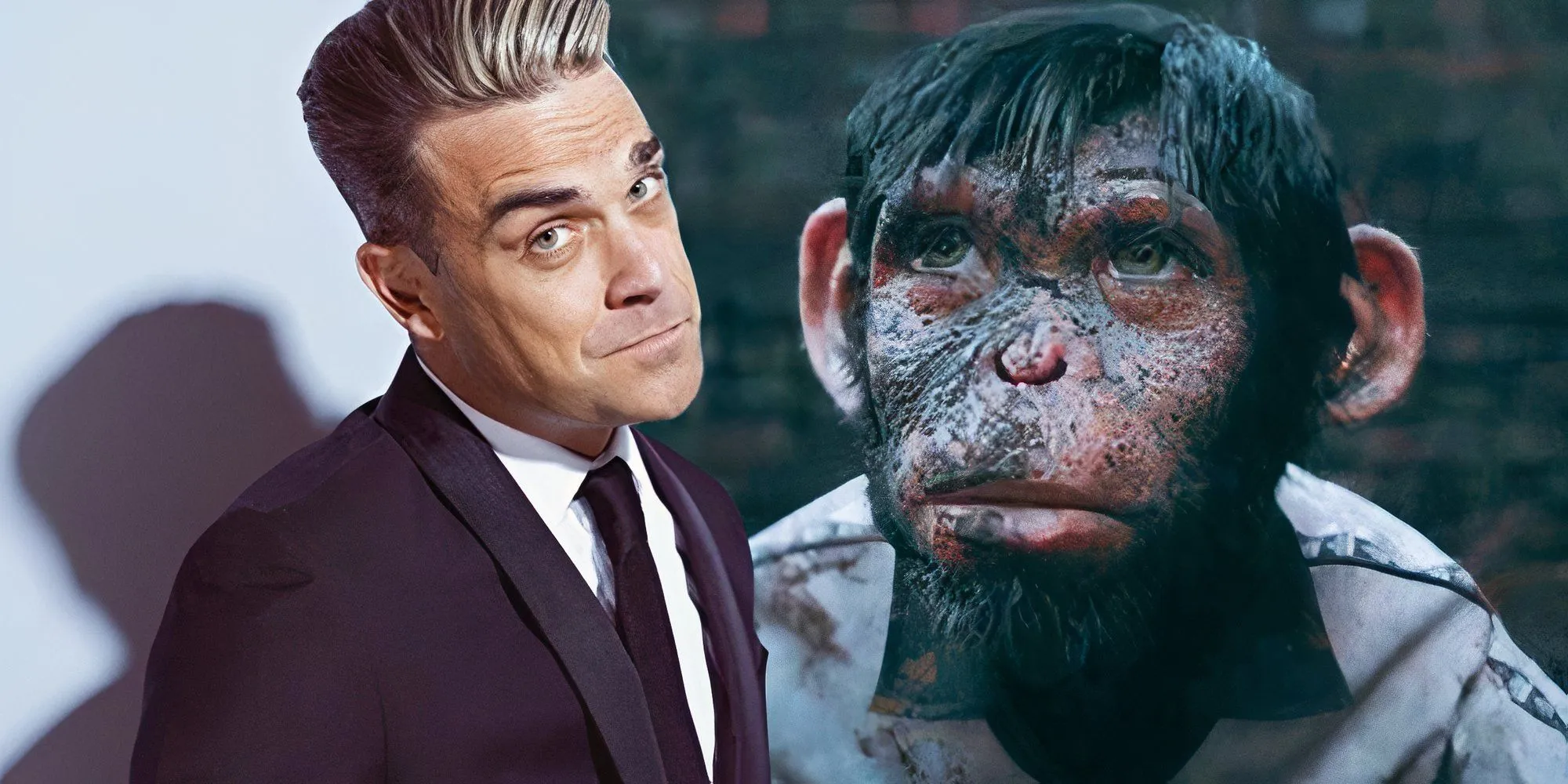
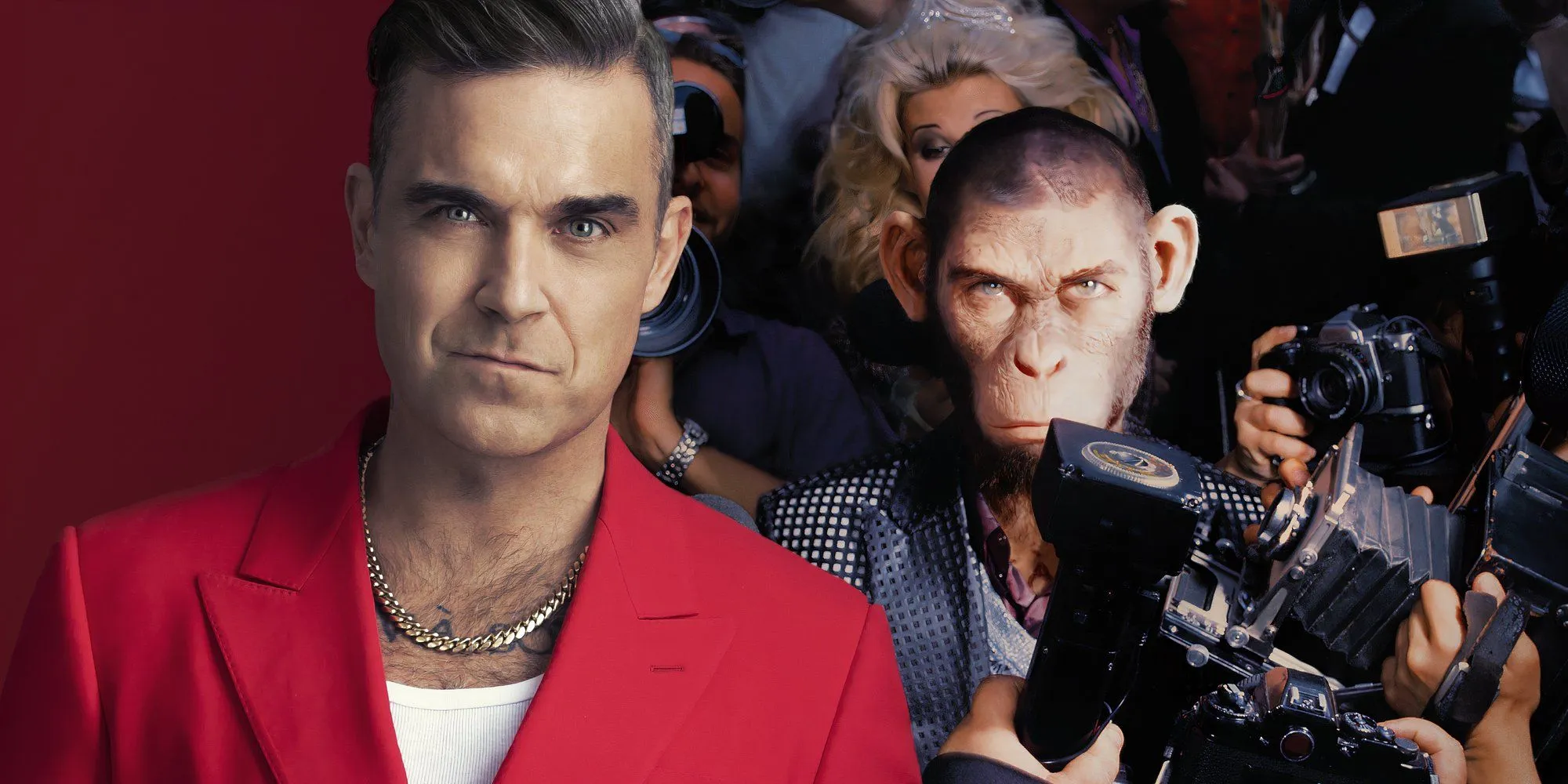
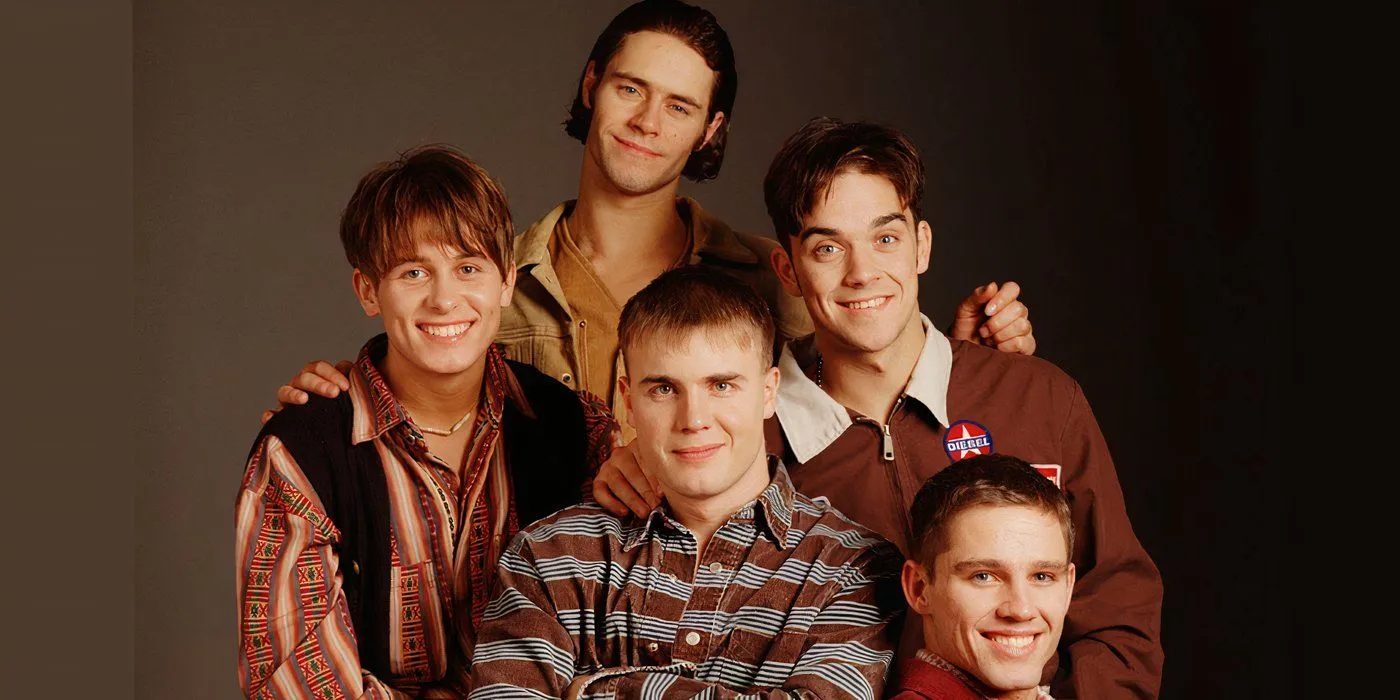
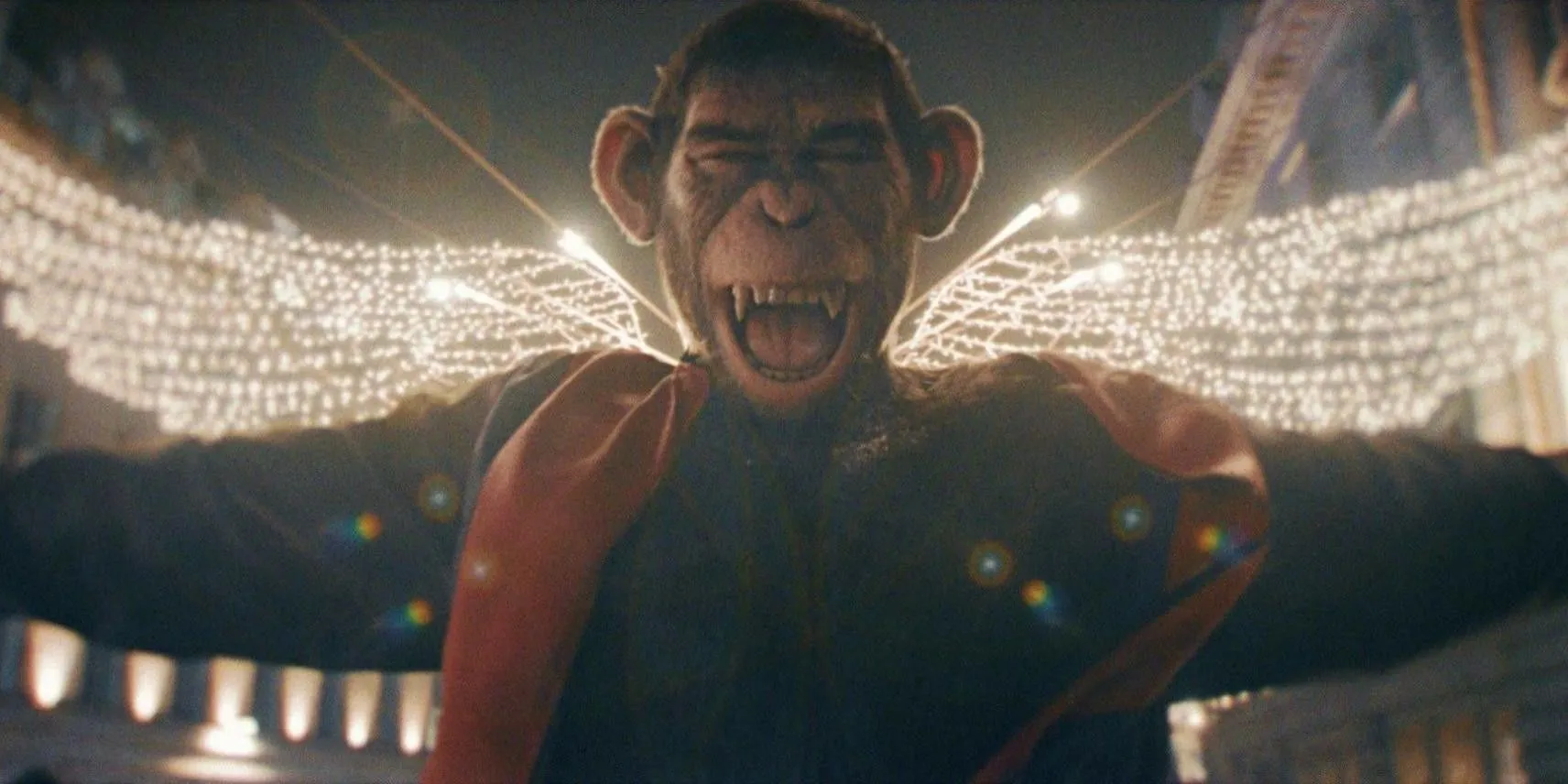
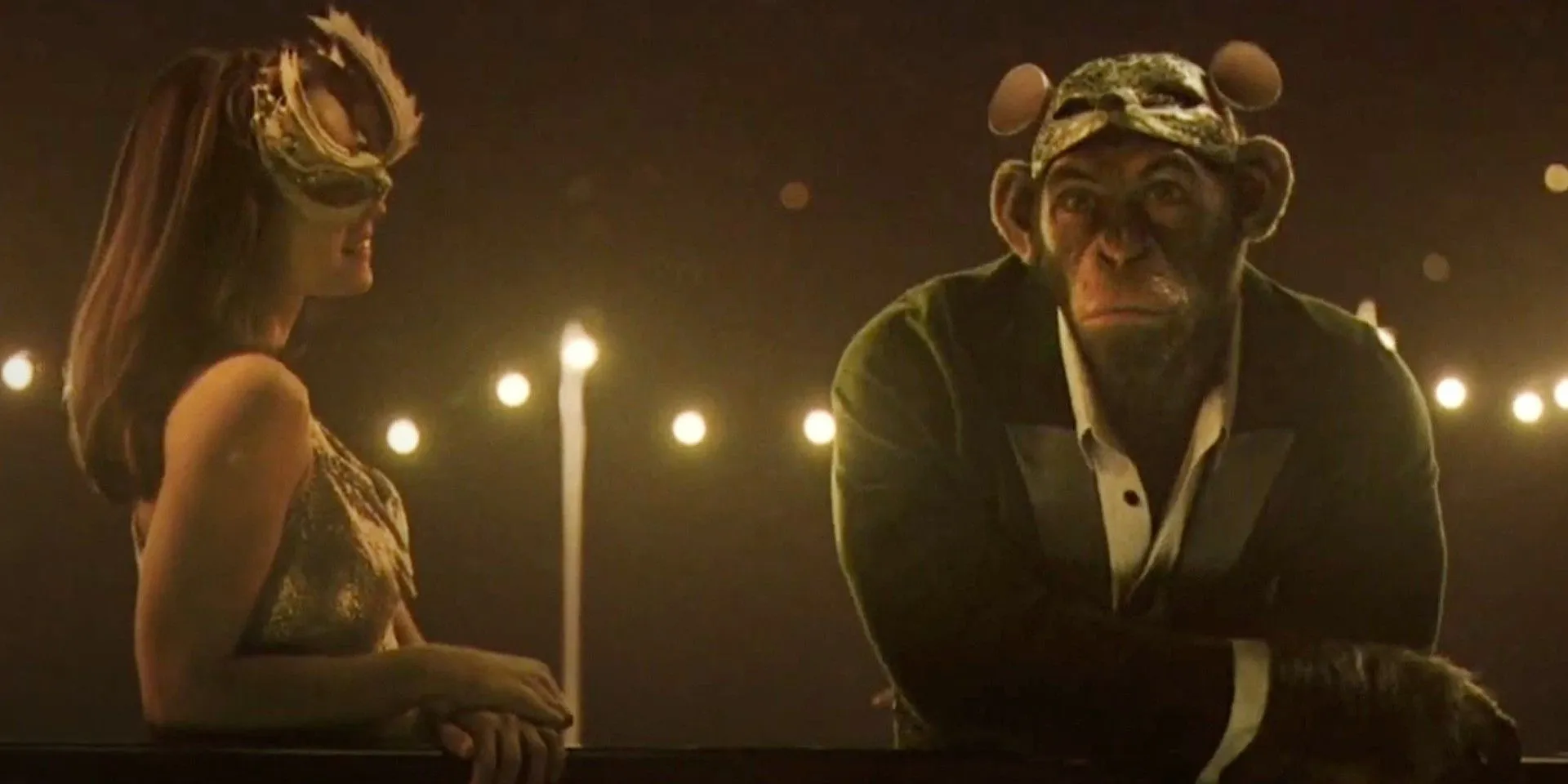
The initial segments of Better Man chronicle Robbie’s early days with Take That, a boy band he joined as a teenager. The film highlights the quick rise to fame, underscoring its toll on Williams’ mental health, which was affected by issues such as substance abuse and conflicts, particularly with Gary Barlow. His departure from the band in pursuit of a solo career marks a pivotal moment in the narrative.
As the film approaches its conclusion, it depicts a heartfelt apology from Williams to Barlow, which in reality paved the way for a much-anticipated reunion tour…
Better Man wraps its storyline at the zenith of Williams’ solo career, referencing events from his rehabilitation that culminated in a triumphant return. Notably absent from the film’s timeline is Williams’ eventual return to Take That in 2010—a significant milestone that followed his reconciliation with bandmates. This reunion resulted in the release of the album Progress, featuring all five original members for the first time since 1995.
The second chapter of Take That experienced remarkable success, rivaling their initial fame. In 2014, Jason Orange, another band member, announced his exit from the spotlight, while Williams balanced both group and solo projects. Currently, Take That continues with the core trio of Gary Barlow, Howard Donald, and Mark Owen.
Robbie Williams’ Ongoing Solo Career
A Steady Stream of New Music
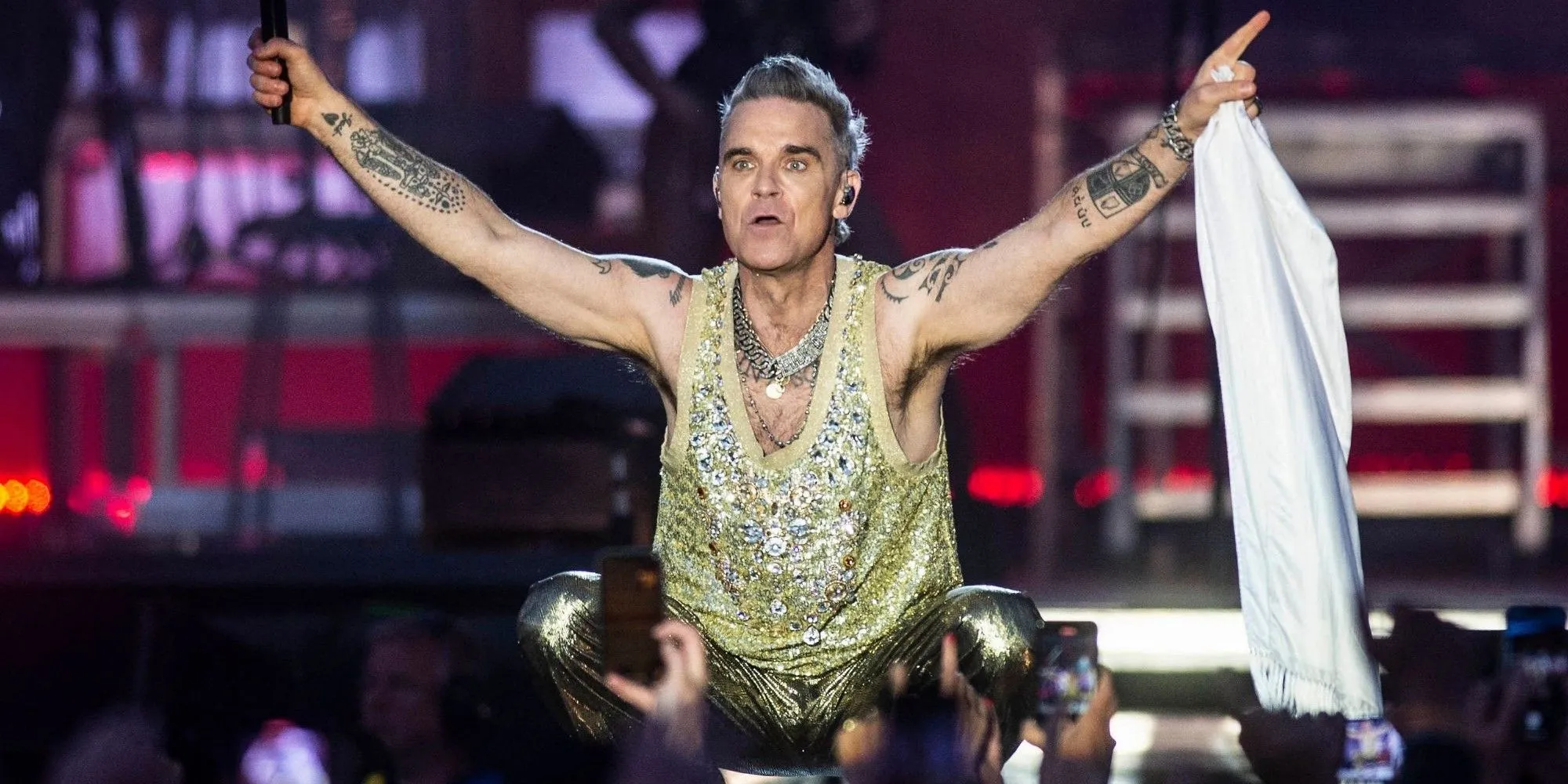
From 1995 to 2009, Robbie Williams cultivated a remarkable solo career, releasing an astounding eight albums during this period. Contrary to expectations, his return to Take That did not hinder his solo endeavors. Instead, after amicably parting ways with the band, he released five more studio albums from 2012 to 2022.
|
Robbie Williams Solo Albums |
Release Date |
|---|---|
|
Life thru a Lens |
September 29, 1997 |
|
I’ve Been Expecting You |
October 26, 1998 |
|
Sing When You’re Winning |
August 28, 2000 |
|
Swing When You’re Winning |
November 19, 2001 |
|
Escapology |
November 18, 2002 |
|
Intensive Care |
October 24, 2005 |
|
Rudebox |
October 23, 2006 |
|
Reality Killed the Video Star |
November 6, 2009 |
|
Take the Crown |
November 2, 2012 |
|
Swings Both Ways |
November 8, 2013 |
|
The Heavy Entertainment Show |
November 4, 2016 |
|
The Christmas Present |
November 22, 2019 |
|
XXV |
September 9, 2022 |
While his subsequent solo albums may not have reached the same heights as his earlier work, Williams remains one of the most significant figures in British pop music. His album XXV topped the UK charts, solidifying his status as the best-selling artist in Britain, based on total number-one albums (according to The Standard). Notably, Better Man largely omits music from Williams’ later solo career, focusing on the biggest hits from his early time with Take That and his first solo phase.
Robbie Williams’ Personal Life Post-Better Man
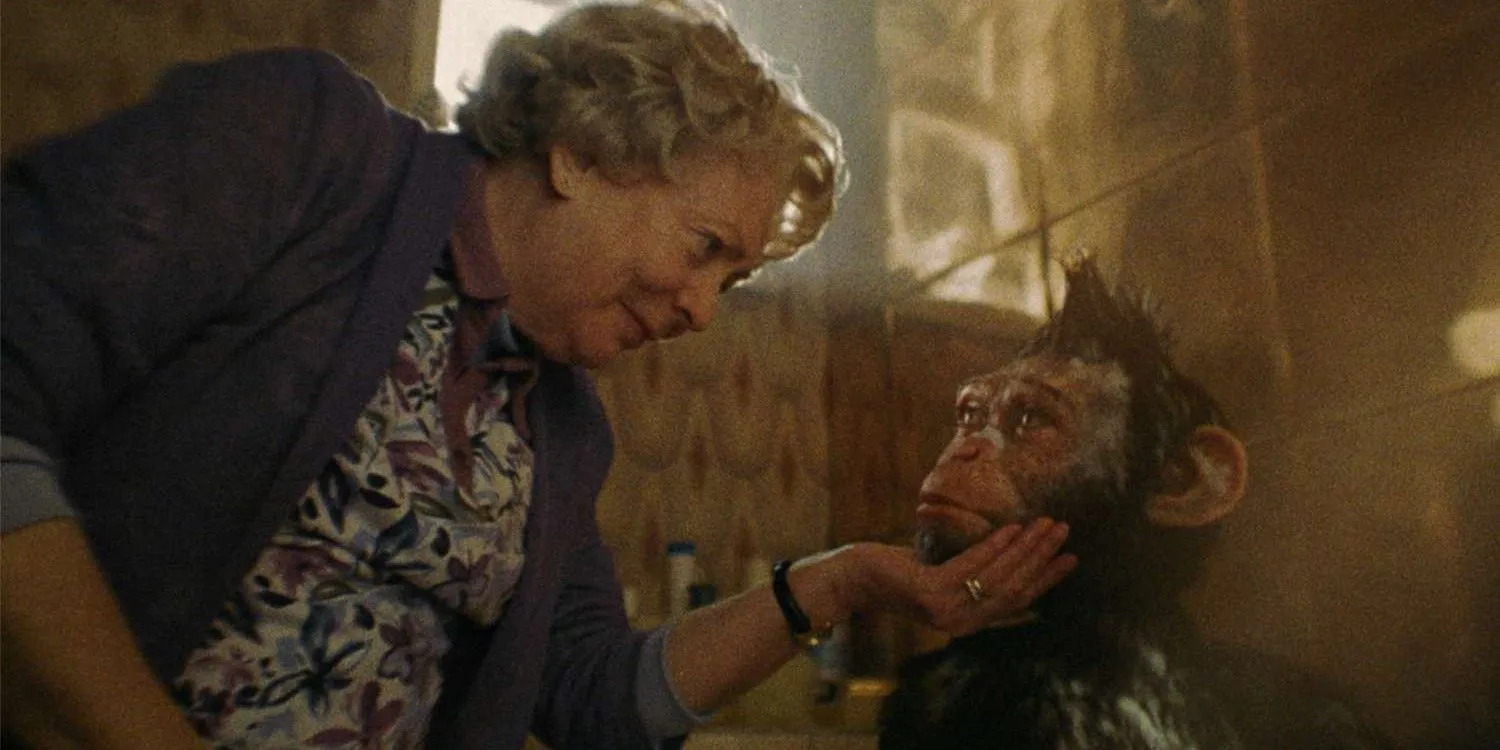
While Better Man provides an extensive overview of Robbie Williams’ personal affairs from the 1980s to the early 2000s, it stops short of exploring his life thereafter. The film illustrates that Williams successfully reconciled with the other members of Take That, centering on his dynamic with Gary Barlow. Additionally, it touches on Williams’ various relocations between London and Los Angeles during the years 2006 to 2016.
The film hints at his relationship with Nicole Appleton, a member of the band All Saints, and subsequently delves into his struggles with mental and physical health. However, since the film’s events, Williams has remarried actress Ayda Field, with whom he shares four children, showcasing a positive evolution in his personal life.




Leave a Reply